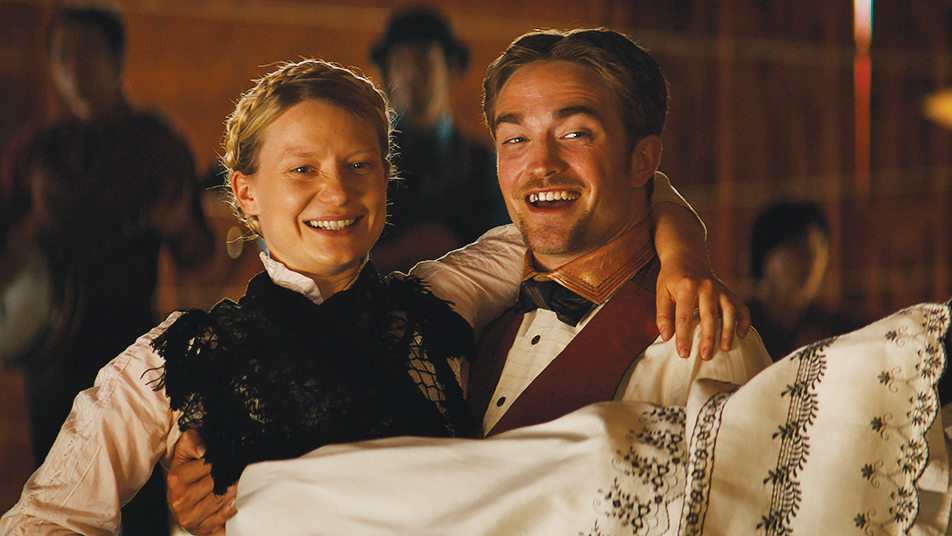By Joe Shelton
“Damsel”, the new Western oddity from writer/director team the Zellner brothers, is a love it or hate it proposition. You’ll love it if you appreciate its unorthodox take on the American western film, and you’ll hate it if you only go in for a certain kind of Western.
All westerns are revisionist — telling stories whose relation to actual quote-unquote history is akin to “The Lord of the Rings” in relation to European history. Which is to say its a lot of tall tales. But “Damsel” goes one further, revising the revisionist Western, and what results feels a little like a movie co-directed by Wes Anderson and the Coen Brothers.
The film opens with Robert Pattinson, formerly of “Twilight” fame, trekking out West to find and rescue his fiance, a woman he met at a cakewalk and who, he believes, has a profound desire to own a miniature horse. To this end he has packed one such horse, named Butterscotch, along with his guitar and his gun, and proffered the services of a dusty, drunken parson. His plan is that they will confront her ostensible kidnappers, shoot them, give her the horse, and then employ the parson to marry them on the spot.
But the parson isn’t what he seems. He’s not a parson at all, in fact. He only wears the clothes of one, owing to the fact that their previous owner abandoned them, fed up with trying to bring God to the wilderness. And then, it turns out the titular “damsel” isn’t one of those, either. She’s a lot more independent than that — and she’d love it if people stopped trying to rescue her.
The acting is good and the film is gorgeously photographed, borrowing the visual aesthetic, if not the tone or theme, of old fashioned Westerns. But the story, the oddly stilted but sometimes very funny dialogue, and the host of strange touches — the piano player in the saloon be a man with no forearms — make this an unforgettable, if mostly likely divisive Western.
I’ll say this: I watched it twice. The first time I was amused but irritated. The second time I came around to liking it a lot, seeing details and turns of phrase I hadn’t noticed before. But whether you love it or hate it, you’ve got to admit it has some style.




Leave a Reply